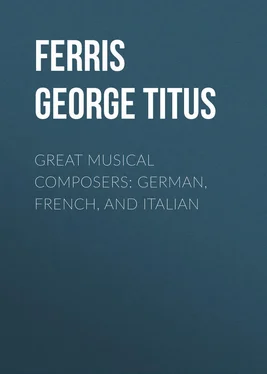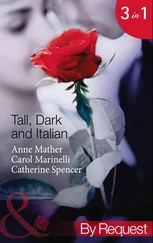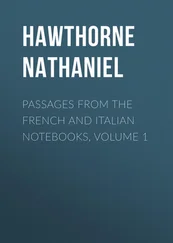George Ferris - Great Musical Composers - German, French, and Italian
Здесь есть возможность читать онлайн «George Ferris - Great Musical Composers - German, French, and Italian» — ознакомительный отрывок электронной книги совершенно бесплатно, а после прочтения отрывка купить полную версию. В некоторых случаях можно слушать аудио, скачать через торрент в формате fb2 и присутствует краткое содержание. Жанр: music_dancing, foreign_antique, foreign_prose, на английском языке. Описание произведения, (предисловие) а так же отзывы посетителей доступны на портале библиотеки ЛибКат.
- Название:Great Musical Composers: German, French, and Italian
- Автор:
- Жанр:
- Год:неизвестен
- ISBN:нет данных
- Рейтинг книги:3 / 5. Голосов: 1
-
Избранное:Добавить в избранное
- Отзывы:
-
Ваша оценка:
- 60
- 1
- 2
- 3
- 4
- 5
Great Musical Composers: German, French, and Italian: краткое содержание, описание и аннотация
Предлагаем к чтению аннотацию, описание, краткое содержание или предисловие (зависит от того, что написал сам автор книги «Great Musical Composers: German, French, and Italian»). Если вы не нашли необходимую информацию о книге — напишите в комментариях, мы постараемся отыскать её.
Great Musical Composers: German, French, and Italian — читать онлайн ознакомительный отрывок
Ниже представлен текст книги, разбитый по страницам. Система сохранения места последней прочитанной страницы, позволяет с удобством читать онлайн бесплатно книгу «Great Musical Composers: German, French, and Italian», без необходимости каждый раз заново искать на чём Вы остановились. Поставьте закладку, и сможете в любой момент перейти на страницу, на которой закончили чтение.
Интервал:
Закладка:
George T. Ferris
Great Musical Composers: German, French, and Italian
Introduction
THE following biographical sketches were originally published in America by Mr. George T. Ferris, in two volumes, separately entitled The Great German Composers and The Great Italian and French Composers . They have achieved the success they deserved: for while we have whole libraries of books upon the history and technicalities of music in general, upon musical theories and schools, and upon the exponents thereof in their artistic capacity, there has been a distinct dearth of treatises dealing in a brief and popular fashion with the lives of eminent composers themselves. Now, when music is “mastered and murdered” in almost every house throughout the length and breadth of the land, there can be no doubt that compilations of this kind must be welcome to a very large number – we will not say of musical students, but of lovers of music. There are, it would be needless to attempt to prove, great numbers of the music-loving public, who practically have no facilities towards making acquaintance with the leading facts in the lives of those men whose compositions they have such a genuine delight in rendering: to these mainly is such a book as Great Composers addressed. But, indeed, to every one interested in music and musicians the volume can hardly fail to be of interest. In his preface to The Great Italian and French Composers , Mr. Ferris explained that – as was very manifest – “the task of compressing into one small volume suitable sketches of the more famous Italian and French composers was, in view of the extent of field and the wealth of material, a somewhat embarrassing one, especially as the purpose was to make the sketches of interest to the general music-loving public, and not merely to the critic and scholar. The plan pursued has been to devote the bulk of space to composers of the higher rank, and to pass over those less known with such brief mention as sufficed to outline their lives, and fix their place in the history of music.”
To The Great German Composers he prefaces a few words which may be quoted – “The sketches of composers contained in this volume may seem arbitrary in the space allotted to them. The special attention given to certain names has been prompted as much by their association with great art epochs, as by the consideration of their absolute rank as composers. The introduction of Chopin, born a Pole, and for a large part of his life a resident of France, among German composers, may require an explanatory word. Chopin’s whole early training was in the German school, and he may be looked on as one of the founders of the latest school of pianoforte composition, whose highest development is in contemporary Germany. He represents German music by his affinities and his influences in art, and bears too close a relation to important changes in musical forms to be omitted from this series.”
Various important events have occurred since the publication of these volumes in America: inter alia , the performance of Wagner’s last great work “Parsifal,” and the death of the great German musician; the production of new works by Gounod and Verdi; and so forth. The editor has endeavoured, as briefly as practicable, to supplement Mr. Ferris’s causeries with the addenda necessary to bring Great Composers down to date. Mr. Ferris further acknowledges his obligation to the following authorities for the facts embodied in these sketches: – Hullah’s History of Modern Music ; Fétis’ Biographie Universelle des Musiciens ; Clementi’s Biographie des Musiciens ; Hogarth’s History of the Opera ; Sutherland Edwards’ History of the Opera ; Schlüter’s History of Music ; Chorley’s Thirty Years’ Musical Reminiscences ; Stendhall’s Vie de Rossini ; Bellasy’s Memorials of Cherubini ; Grove’s Musical Dictionary ; Crowestl’s Musical Anecdotes ; Schœlcher’s Life of Handel ; Liszt’s Life of Chopin ; Elsie Polko’s Reminiscences ; Lampadius’ Life of Mendelssohn ; Urbino’s Musical Composers ; Franz Hueffer’s Wagner and the Music of the Future ; Haweis’ Music and Morals ; and the various articles in the leading cyclopædias.
To this volume the present editor has appended a chronological table of the musicians referred to in the following sketches.
In reading the lives of these great musical composers, we can trace the gradual development of music from its earliest days as an art and as a science. Unlike the other arts which have flourished, decayed, and had rebirth, music, as we now understand it, sprang into being out of the ferment of the Renaissance, and therefore is the youngest of the arts – a modern growth belonging particularly to the later phases of civilisation. Music in a rude, undeveloped condition has existed doubtless “since the world began.” In all nations, and in the records of past civilisations, indications of music are to be found; martial strains for the encouragement of warriors on the march; sacred hymns and sacrificial chants in religious ceremonials; and song accompanied by some rude instrument – we find to have been known and practised among remote tribes as well as among potent races. The bards of divers peoples and many countries in ancient days played upon the harp not merely for delight, but for the exorcism of evil spirits, the dispersion of melancholy, the soothing and cure of mental and physical disorders. Here we find music as the direct expression of feeling, but not as a science. The Greeks made further use of music by incorporating it into their dramas, but it was chiefly declamatory, and was used solely in the choruses. To modern ears such music would sound very inefficient, more especially as the antique instruments were of the crudest – and although musical sounds, to a limited extent, could be produced from them, all attempts at expression must have been unsuccessful.
In Europe in the early middle ages there existed two kinds of music: that of the people, spontaneous, impulsive, the song of the Troubadour, unwritten and orally transmitted from father to son; that of the Church, which had been greatly encouraged since the days of Constantine, and especially owed much to St. Ambrose and St. Gregory. For a time music became the handmaid of the Church, but it thereby, to a certain extent, also gave voice to the lyrical feelings of the people; for the chorister and composer not only embodied popular songs into the chants, but in many instances interpolated the words themselves. This incongruity at length necessitated the reform, brought about by Palestrina – the father of sacred music as we now know it – whose Missa Papae Marcelli , performed in 1565, established a type which has been more or less adhered to ever since. The services of the Church gave rise to the oratorio, which, however, chiefly owes its development to Protestant genius, more especially to Handel. In 1540 San Filippo Neri formed in Milan a Society called “Le congregazione dei Padri dell’ Oratorio” (from orare to pray), and we are told by Crescembini that “The oratorio, a poetical composition, formerly a commixture of the dramatic and narrative styles, but now entirely a musical drama, had its origin from San Filippo Neri, who in his chapel, after sermons and other devotions, in order to allure young people to pious offices, and to detain them from earthly pleasures, had hymns, psalms, and such like prayers sung by one or more voices.” “Among these spiritual songs were dialogues; and these entertainments, becoming more frequent and improving every year, were the occasion that, in the seventeenth century, oratorios were invented, so called from their origin.” 1 1 Hawkin’s Musical History , vol. iii., p. 441.
Интервал:
Закладка:
Похожие книги на «Great Musical Composers: German, French, and Italian»
Представляем Вашему вниманию похожие книги на «Great Musical Composers: German, French, and Italian» списком для выбора. Мы отобрали схожую по названию и смыслу литературу в надежде предоставить читателям больше вариантов отыскать новые, интересные, ещё непрочитанные произведения.
Обсуждение, отзывы о книге «Great Musical Composers: German, French, and Italian» и просто собственные мнения читателей. Оставьте ваши комментарии, напишите, что Вы думаете о произведении, его смысле или главных героях. Укажите что конкретно понравилось, а что нет, и почему Вы так считаете.












